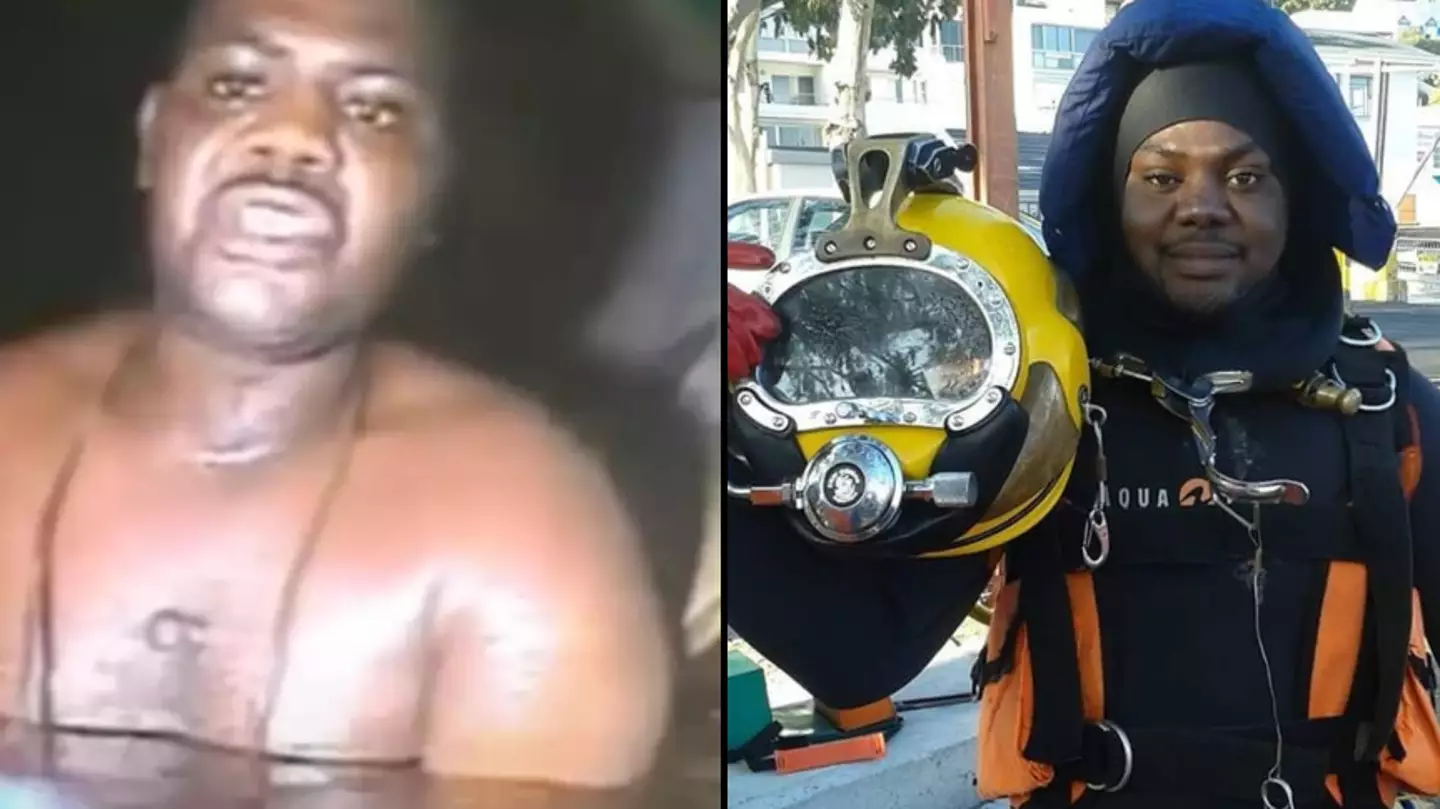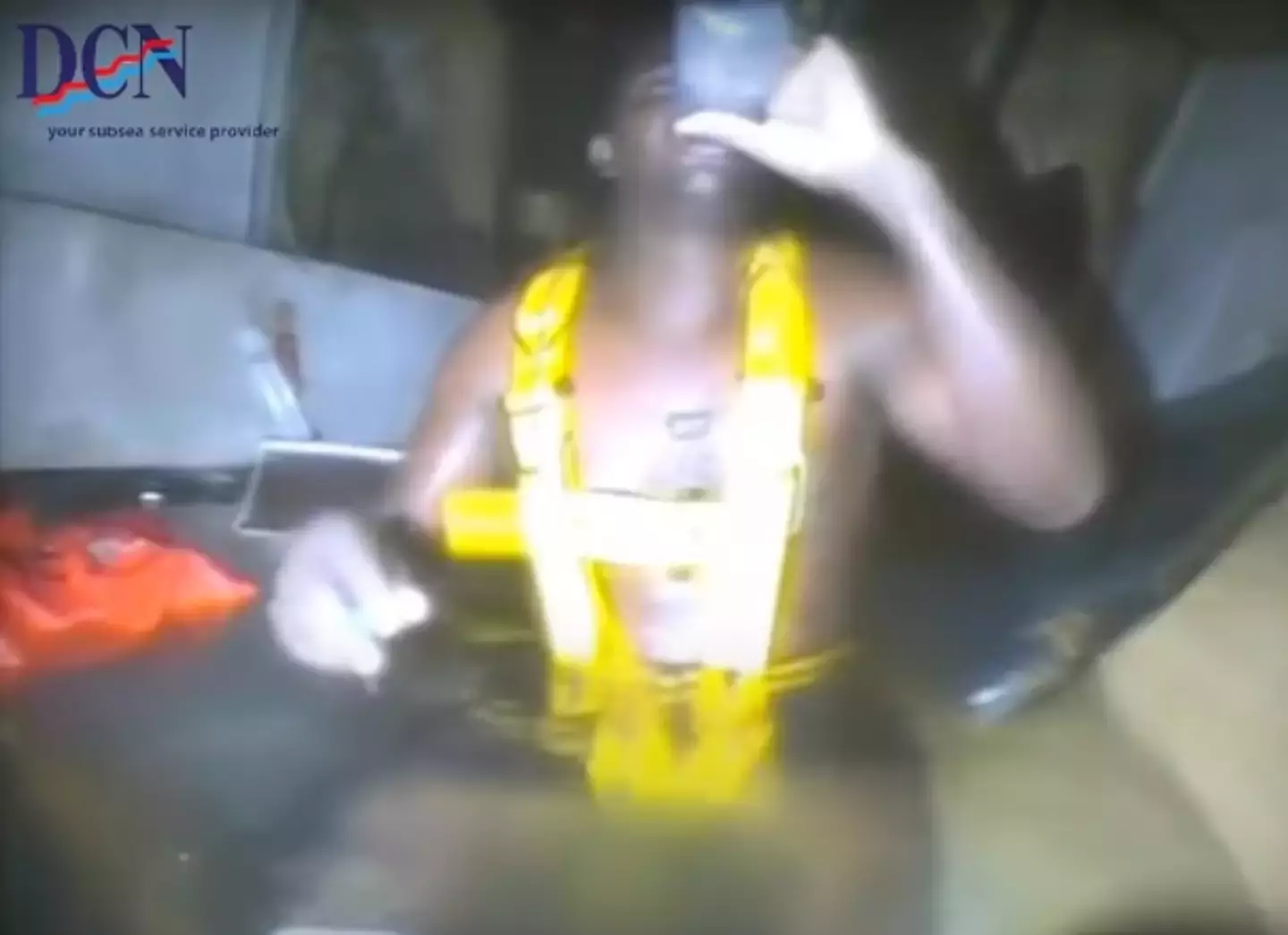
That's me never going on a boat again.
Harrison Okene was one of the 12 men off the coast of Nigeria travelling on a vessel struck by tragedy.
The Jascon-4 was hit by a wave and sank all the way down to the sea floor on 26 May 2013.
Aged 29 at the time, Okene was merely working as a cook on the ship.
Advert
But as water filled the vessel, he had to think fast for a slim chance at survival.
“Before we knew, we were sinking," he told 9News last year.
"We had been sailing for many years, we knew the sea, we had never had any issues before.
“I was struggling to stay alive, wondering how long it (the air pocket) would last me.
"I was thinking about my family, my wife, what would happen, how would she live, how can I get out, thinking about my life as well.”
Before getting stuck, he was able to get his hands on small amounts of food and cola that ultimately kept him going.
However, as the water surrounded him, crayfish, he claims, nibbled at his skin for nearly three days.

"I tried to kill the fear in front of me," he told The Guardian.
"Because one thing that can kill you fast is fear. That panic that comes at you, it kills you before your real death comes.
"Because the moment you start panicking, you use too much oxygen."
Stuck underwater for 60 hours, eventually Okene was rescued with body cam footage showing a pale, floating hand, which the diver assumed belonged to a dead person.
"We found one, yeah," the diver said, before realising: "He's alive! He's alive!"
Alex Gibbs, a life support technician on duty at the time, recalled: “I was shocked and then a bit excited. Nobody thought there was anyone alive.

"Contrary to popular belief, when people are trapped in confined spaces it is not the oxygen running out that will kill you, it is your own exhaled breath causing a build-up of CO2.
"By the time he had been found, this was at a clearly high level.
"You can see him panting in the video and his slightly glazed eyes caused by this."
Despite the traumatic incident, in 2015, he decided to retrain as a diver.
"I have faced a lot of my fears in my life, and I decided to face this once and for all," he said.
Okene is now a IMCA Class Two Commercial Air Diver.
Referring to the ocean as 'his world', he said: “I'm enjoying diving, it’s life for me, it’s fun.”
Topics: World News